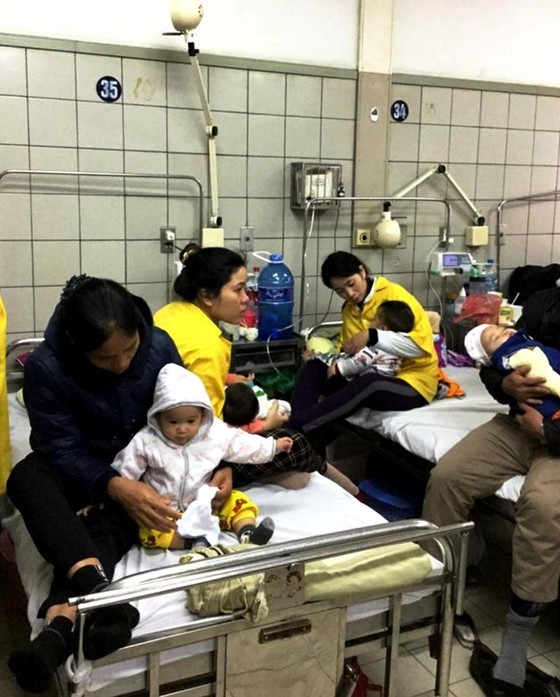 Surge in illness relates to immunity debt
Surge in illness relates to immunity debt
According to Associate Professor Nguyen Thi Dieu Thuy, Head of the Department of Pediatrics, Hanoi Medical University, the cause of the increase in infectious diseases in children is due to immune debt after a period of social distancing during the previous Covid-19 epidemic. However, this break for immune systems may have actually weakened a person’s defenses. As a result, some people may have developed an immunity debt.
According to the latest study conducted by Hanoi Medical University, many infectious diseases in children are developing complicatedly with increasing cases of children infected with influenza, adenovirus, viral fever, hand-foot-mouth disease, and dengue fever. Consequently, pediatric clinics are overcrowded with kid patients.
Through statistics, more than 3,130 cases of Adenovirus have been recorded at the National Children's Hospital since the beginning of 2022, including 9 deaths of children. Meanwhile, from the beginning of September until now, Ho Chi Minh City-based Children's Hospital has received 1,500-2,000 children with respiratory diseases who came to the infirmary for examination.
In particular, many seasonal diseases have become complicated such as the influenza B epidemic in many northern provinces.
Immunity debt happens when the body has not been in contact with viruses or vaccines for a long time. In the past, measures to prevent the spread of the Covid-19 virus such as social distancing, increased hand washing and disinfection, and wearing masks have greatly contributed to preventing the spread of Covid-19 virus and common diseases.
The long period of self-isolation against Covid-19 helped our bodies avoid most other seasonal viruses. However, these measures have short-term beneficial effects, when these preventive measures are no longer common, children return to school, participating in outdoor activities and community activities, they are at risk of being infected with common diseases caused by viruses and bacteria; outbreaks of these disease will increase, said Associate Professor Dr. Nguyen Thi Dieu Thuy.
























